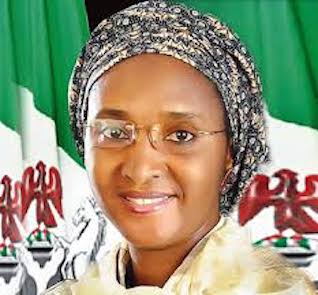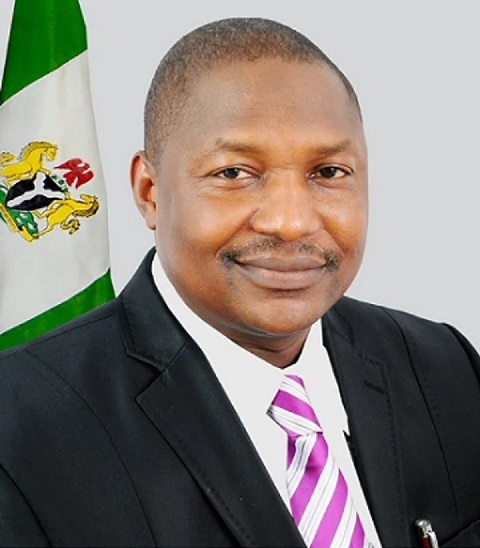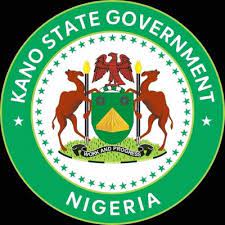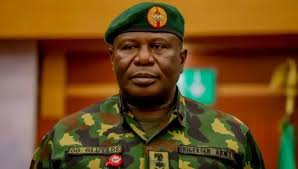COVER
Bailout: FG Deducts N8.75bn From States Allocation

By Mathew Dadiya, Abuja
The Federal Government has revealed that it has deducted a total of N8,750,000,000 from 35 states of the federation as part of the N614 billion National Budget Support Loan Facility given to states in 2016 to offset salary areas owed to workers.
Minister of Finance, Mrs.
Zainab Ahmed disclosed this while briefing State House Correspondents after the National Economic Council Meeting Chaired by Vice President Yemi Osinbajo yesterday at the Presidential Villa, Abuja.The minister said that the deduction was made at source from statutory allocations to the various States by the Federation Accounts Allocation Committee (FAAC) meeting held September, adding that another deduction would be made in this October.
Daily Asset recalls that the fund was a conditional budget support provided by the CBN at 9% with a grace period of two years; while the Federal Ministry of Finance disbursed with documented approval by the presidency to help states pay salaries, gratuities and pensions.
Mrs. Ahmed spoke alongside Anambra State Governor, Willy Obiano, Ogun State Governor, Dapo Abiodun, Nasarawa State Governor, Abdullahi Sule, and Minister of Health, Osagie Ehanire.
According to her, the Federal Government has made the first and second months, N252 million monthly deductions, in September and October, based on the twenty years repayment period.
Following the outcry of state governors, another repayment schedule plan extending the year to thirty years and monthly repayment of N162 million was presented to NEC on Tuesday, she added.
However, the minister said that the state governors were still not satisfied with the repayment extension to thirty years.
She said “The budget support facility was initially for twenty years repayment period. And when we made the first deduction in September, the states had complained that the amount deducted, which was N252 million, was too harsh.
“So, since then, the Central Bank of Nigeria, who is the lender, has revised the condition to make the repayment period longer. And so the new repayment period is thirty years. And this means that the states will be paying monthly N162 million. But again today, the states still were not satisfied with the condition.
“So, we are expecting that the Federal Ministry of Finance, Budget and National Planning, CBN and the states will engage again with the view of having the CBN further revise the condition to reduce the monthly repayment burden”, she stated
“The budget support facility was initially for a repayment period of 20 years; when we made the first deduction in September, the states had complained that the amount deducted which was N252 million was too high.
“Since then the CBN which is the lender had revised the conditions to make the payment longer; so, the new repayment period is 30 years.
“This means that states will be paying monthly, N162 million but again today, the states still were not satisfied with the conditions. We are expecting that the Federal Ministry of Finance, Budget and National Planning will engage again with a view to having the CBN further revise the conditions to reduce the monthly repayment burden.”
Meanwhile, state governors yesterday rejected the proposed plan by the Federal Government to extend the repayment period of its budget support to state government from twenty years to thirty years.
Also speaking with State House Correspondents, Nasarawa State Governor, Abdullahi Sule, said the condition for the repayment of the facility was not friendly.
He also said that the Federal Government cannot dictate time state government the morality for the implementation of the new national minimum wage arguing that each state has its peculiarity.
He said that the Governors Forum had agreed that each state will implement the minimum wage law according to its ability especially the issue of consequential adjustment.
The governor said: “On readiness of the state governors
Just yesterday at the Nigeria Governors Forum meeting, it was presented by the chairman of the forum where we indicated that on the N30, 000 minimum wage and therefore all the state governors are willing to abide by that law. However, the various states will go back and sit down with the labour unions and agree on increment after the N30,000.
“So, the law is on the increment to N30,000 and I think none of the governors is contesting the N30,000 but it is thereafter that the governors are saying we are going to sit down; we are not going to abide by the template set by the Federal Government.
“Even the Minister of Labour has clearly stated that we are not under any direct instruction to follow; I think that one was well discussed.
“During the deliberations on matters arising, the governors commended Presidential Enabling Business Environment Council (PEBEC) for the recent improving of the ranking of Nigeria in the World Bank Ease of Doing Business ranking 2020.
“Members of the council congratulated the President, the Minister, members of the PEBEC team, the Vice president for this reforms and vigorous improvements that we have had so far.
“Also, the governor of Kaduna State presented a report on the ad hoc committee to the council; this committee was asked actually to review and reconcile the account between the states, local governments, and the Federal Government to see who is owing who.
It was decided that the report would be submitted to the Federal Government for response and then NEC will discuss the report thereafter.”
In a similar development, the Minister of Finance Zainab Ahmed has said that Academic Staff Union of University (ASUU) has no option other than to comply with the federal government’s directive on Integrated Personnel Payment Information System (IPPIS) because the governor would not rescind its decision.
She explained that the President Buhari directed that every agency of government; every staff must be on IPPIS “and my job is to comply with the president’s directive so that is what I do and we are going to do that.”
The minister said, “it is a pity if ASUU carries out this strike because what ASUU is saying now is that they should be treated differently from other staff of the government of Nigeria who are also on IPPIS; so, we will be engaging ASUU; we will be discussing with them; but at the end of the day, as far as I am concerned, my instruction is from the president.
Earlier.”
She also said that the ministry presented to National Economic Council the balances as that October 22 for the three special accounts: Excess Crude Account, the balance is $324.35 million; Stablisation Fund Account, N28.5 billion; Natural Resource Development Fund, N70.6 billion.
| ReplyForward |
COVER
DAILY ASSET Appoints Torough, Editor, Names Eze, Deputy

By Laide Akinboade, Abuja
As part of efforts to reposition the newspaper for optimum corporate performance, the management of Asset Newspapers Limited, Publishers of DAILY ASSET, has announced the appointment of David Torough as the Editor of the Abuja-based national daily.
A statement by the management said the appointments were part of the company’s new strategy to further penetrate the various states in the country and raise its readership and patronage.
“DAILY ASSET is widely acceptable across the country and to maintain our leadership position, we need to increase management presence, hence the need to create new Bureau offices in some locations outside Abuja and Lagos,” the statement quoted the Publisher/ Editor-in-Chief, Dr Cletus Akwaya to have said.
In a statement yesterday, Publisher and Editor-in-Chief of the fast-growing daily, Dr. Cletus Akwaya said the appointment was part of the new strategy to properly situate the paper for better productivity.
“DAILY ASSET has a commitment with the Nigerian people. We are determined to weather the storm and give Nigerian readers a Newspaper that satisfies their yearnings and reading pleasure and we can only do that with the right set of professionals,” the statement said.
Akwaya, a former Commissioner of Information from Benue State said the difficult times being faced by Nigerians posed a great challenge to the media as the people deserved credible information with which to make choices.
“We have a bond with the people, to offer credible information at all times in the best tradition of the Nigerian Press and on this scale of objectivity, truth and fairness, we pledge to remain steadfast no matter the challenges,” Akwaya was quoted to have said.
He said the newspaper will maiantin its daily print run and circulation to all states of the federation and urged advertisers to take advantage of the deep penetration of the Daily Asset brand to send their messages.
Torough, the new Editor has had a steady rise in the Newspaper in the last five years.
A graduate of Mass communication of the Benue State University, Makurdi, Torough joined the company in 2022 as Benue State Correspondent. He was spotted for his brilliance and redeployed to Abuja the following year and promoted to Deputy News Editor. He was subswuently named Deputy Editor of the paper, a position he held until the recent appointment.
Torough has attended several journalistic workshops and trainings to properly equip himself for the task ahead.
The statement also said the Management named Eze Okechukwu as Deputy Editor.
Before his elevation as Deputy Editor, Eze has been Deputy Politics Editor and DAILY ASSET Newspaper correspondent covering the Senate, having joined the organization in 2021.
Born on March 10, 1975, Eze holds a Masters Degree in Mass Communication from the Enugu State University of Science and Technology.
Eze began his journalism career with Daily Star, Enugu and later worked with Daily Trust Newspaper, Abuja as sports reporter.
Aside from his journalistic excellence, he has a great deal of passion for sports.
COVER
Insecurity: Northern Govs, Monarchs Seek Six-month Mining Suspension

From Ngutor Dekera, Kaduna and Aliyu Askira, Kano
Northern governors and traditional rulers yesterday called for the suspension of mining activities across the region for six months, blaming illegal mining for worsening insecurity in many states.The resolution was contained in a communiqué issued after a joint meeting of the Northern States Governors’ Forum and the Northern Traditional Rulers’ Council held at the Sir Kashim Ibrahim House, Kaduna.
The meeting, chaired by the Gombe State Governor and NSGF Chairman, Muhammadu Yahaya, had in attendance the 19 northern governors and chairmen of the 19 states’ traditional councils. The Forum expressed concern over the escalating violence in parts of the North, including the killings and abductions recently recorded in Kebbi, Kwara, Kogi, Niger, Sokoto, Jigawa and Kano states, as well as renewed Boko Haram attacks in Borno and Yobe.“The Forum extends its deepest condolences and solidarity to the governments and good people of the affected states,” the communiqué said, noting that the attacks on schoolchildren and other citizens had become “unacceptable tragedies” that required urgent collective action.It commended President Bola Tinubu for what it described as the Federal Government’s “firm response” to recent abductions and insurgency threats, especially the rescue of some abducted pupils.The governors also saluted security agencies for their sacrifices on the frontlines.“We resolved to renew our support for every step taken by the President and Commander-in-Chief to take the fight to insurgents’ enclaves in order to end the criminality,” the Forum stated.A major highlight of the meeting was the North’s renewed push for the establishment of state police, with governors and traditional rulers insisting that decentralised policing had become inevitable.“The Forum reaffirms its wholehearted support and commitment to the establishment of state police,” the communiqué added, urging federal and state lawmakers from the region to “expedite action for its actualisation.”On illegal mining, the governors said criminal mining networks were fuelling violence and providing resources for armed groups.As a corrective measure, they asked Tinubu to direct the Minister of Solid Minerals to impose a six-month suspension of mining activities in order to allow for a full audit and revalidation of licences.“The Forum observed that illegal mining has become a major contributory factor to the security crises in Northern Nigeria. “We strongly recommend a suspension of mining exploration for six months to allow proper audit and to arrest the menace of artisanal illegal mining,” it said.To strengthen the fight against insecurity, the governors also announced the creation of a regional Security Trust Fund.Under the proposed arrangement, each state and its local governments will contribute ₦1bn monthly, to be deducted at source under an agreed framework.They said the fund would help provide sustainable financing for joint operations, intelligence-driven interventions and coordinated security responses across the region.At the end of the meeting, the Forum reaffirmed its commitment to unity and collective responsibility.“Only through unity, peer review and cooperation can we overcome the pressing challenges before us,” it declared.The Forum agreed to reconvene on a date to be announced.Meanwhile, Nigeria’s worsening security crisis took a grim turn on Monday as bandits launched fresh attacks in Kano State, abducting 25 villagers, even as the Federal Government raced to secure the release of more than 300 Catholic school children kidnapped in Niger State.In the early hours of Monday, armed bandits invaded Unguwar Tsamiya—popularly called Dabawa—in Shanono Local Government Area of Kano State, whisking away nine men and two women after shooting into the air and assaulting residents. The attackers also rustled two cows.A resident lamented the community’s helplessness: “We cannot do otherwise; most of us cannot leave because we have nowhere to go. This is our place, our land and everything is here.”The assault came less than 24 hours after a similar attack on Yan Kamaye in Tsanyawa LGA, a community along the volatile Katsina border.In Niger State, National Security Adviser Nuhu Ribadu has assured distraught families of St. Mary’s Co-Education School, Kontagora that the more than 300 students and staff abducted on November 21 will return home “soon.” Ribadu, who led a high-level federal delegation to the school on Monday, said the abductees are safe, though he offered no specifics on their location or the status of rescue operations.According to Daniel Atori, spokesman for the Catholic bishop overseeing the school, the NSA reassured officials: “The children are where they are and will come back safely.”The St. Mary’s attack is part of a worrying resurgence of mass kidnappings reminiscent of the 2014 Chibok schoolgirls’ abduction. Security analysts warn that banditry has evolved into a “structured, profit-seeking industry,” with hundreds of Nigerians abducted in November alone.The Kontagora school abduction occurred the same week 25 girls were kidnapped in Kebbi State—victims who authorities say have since been rescued through “non-kinetic” means. About 50 of the St. Mary’s hostages have also managed to escape.Ribadu’s delegation, which included the Minister of Humanitarian Affairs and the Director-General of the Department of State Services (DSS), reaffirmed the government’s commitment to securing the freedom of all abducted citizens.As communities from Kano to Niger continue to bear the brunt of these violent incursions, the escalating spate of kidnappings underscores the urgent national demand for a more decisive and coordinated security response.COVER
Abacha Loot Probe: Malami Faces EFCC Panel Daily in December

By David Torough, Abuja
The Economic and Financial Crimes Commission (EFCC) said former Attorney‑General of the Federation and Minister of Justice, Abubakar Malami, will face a team of interrogators at its office daily throughout December.A credible source in the EFCC said on Monday that the daily appearance was part of an ongoing investigation into the whereabouts of an alleged 490 million dollars Abacha loot secured through a Mutual Legal Assistance (MLAT) request.
The source said that Malami, who was summoned for interrogation by the EFCC on Saturday, was barred from leaving Nigeria for the next one month.According to the source, one of the conditions for his release on Saturday was that he should report daily to the EFCC Headquarters in Abuja for further interrogation.The source said Malami would have to appear daily at the anti-graft office due to the volume of the investigation and the seriousness of the charges against him.”We seized his passport, it is the normal routine during investigation, but he has to report at the EFCC headquarters in Abuja every day for the next month.”He will be reporting for further investigation throughout December.”He will be reporting every day, starting from Dec. 1st to Dec. 31st.He will appear before the team of investigators for the entire month of December.”He will be reporting to EFCC for investigation for the period because of the volume of the investigation and the seriousness of the charges against him,” the source added.According to the source, a fact sheet on the former minister revealed that Malami had several issues to clarify with the EFCC within the coming weeks.“We have asked him to explain the whereabouts of the $490 million Abacha loot secured through MLAT.“We didn’t say he stole money, but he should account for the loot. This is one of the issues he will clarify to our investigators.”The commission cited the large volume of documents he must review and the need for extensive interviews as reasons for seizing his passport.The source said EFCC would not engage in a war of words but would release its findings after a thorough investigation.Malami, in a statement by his media aide, Mohammed Doka, on Monday in Abuja, however, described the EFCC investigation as a political witch‑hunt.He confirmed he honored an EFCC invitation on Nov. 28, describing the engagement as fruitful and expressing confidence that the probe would vindicate him.Malami described the EFCC’s allegations as baseless, illogical and devoid of substance, insisting they collapse under factual scrutiny.



























